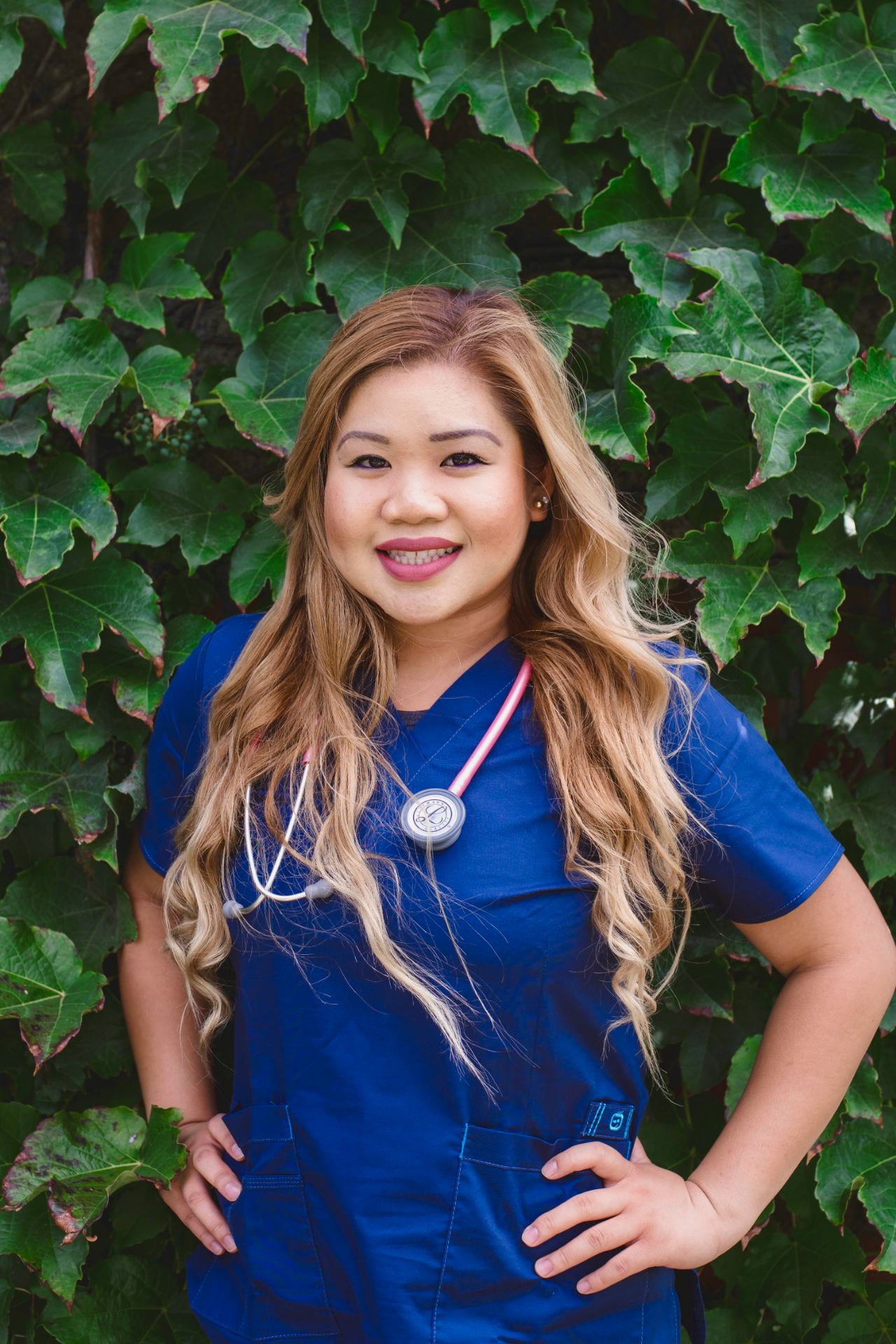By Abby McConnell
For as long as she can remember, San Jose State University McNair Scholar Stephanie Dizon had always dreamed of becoming a nurse. Even when she didn’t get into the nursing program at SJSU the first time around, she wasn’t dissuaded. Instead of viewing it as a setback, she saw it as an opportunity to explore classes outside her major. While she waited to reapply, she took classes in justice studies and human rights, and got involved in research activities on campus. She was accepted to the program the following year, but these explorations opened up her perception of what pursuing her passion about healthcare could look like, particularly in terms of social justice. As a result, she graduated with a BS in Nursing, with minors in Human Rights and Justice Studies from SJSU.
“In healthcare, the diagnosis is always the focus,” Dizon said. “But what about the socio-economic factors that determine what patient care will look like? Do they have easy access to their doctors, a good diet or family support? All of these things play a key role in both treatment and recovery, and I am fascinated by the way they influence patient care.”
Dizon worked several jobs while at SJSU, but it was her time as a patient coordinator in a radiology clinic that shifted her academic trajectory. There, she was exposed to the world of oncology and palliative care, a field she decided to pursue. Currently, she is a palliative care case manager, who visits patients in their homes or assisted living facilities, working in tandem with doctors, social workers, chaplains and family members as a liaison to get patients the help they need.
“It’s incredibly rewarding to serve patients who might feel isolated or confused about treatment or who don’t have a lot of contact with people other than their spouse or immediate family. I am grateful to be the person that they can turn to and talk through their illnesses and options,” she said.
While Dizon, who graduated this spring, eventually plans to pursue a PhD in nursing, she is headed to Yale Divinity School in the fall to study theology and earn a Master in Divinity degree. This may appear a departure from her focus on healthcare to some, but for Dizon, it makes perfect sense. After all, Yale is home to the first hospice program in the United States.
“Personally, I want to pursue theology more deeply, and professionally, I want to understand more about the intersection of palliative care and spirituality. If we could integrate more spiritual practices into palliative care plans, I believe patients would benefit tremendously,” she said.
Dizon came to the US from the Philippines with her parents when she was 9, to be closer to extended family. Both her parents have BAs, so earning her undergraduate degree was never in doubt. However, graduate school wasn’t as much on her radar until she got involved with the McNair Scholars Program and its director, Dr. Maria Cruz.
“Dr. Cruz was the first person to tell me that I could do it, that I could go to a school like Yale. It had never occurred to me before to even apply to such a prestigious place,” she said.
She credits the McNair program for not only guiding her through the graduate school application project, but connecting her with nursing mentors and research opportunities. These include her own research project that investigated how stigma affects those living with HIV. Her senior capstone project that took her to Grenada, where she collected data for the Grenada Ministry of Health as part of the Health Partnerships in Action faculty-led program run through the Valley Foundation School of Nursing in the College of Health and Human Sciences.
These connections and opportunities, along with professors and mentors such as Dr. William Armaline, Dr. Constance Hill, Deborah Nelson, MSN and Katherine Kinner, MSN, FNP, allowed her to integrate her passions across multiple disciplines in research and scholarship. As an aspiring nurse scholar, she hopes to continue this trajectory in her academic and professional career, by advocating for justice and equality in healthcare and committing her clinical and scholarly work to develop access, quality and delivery of healthcare to all people.

